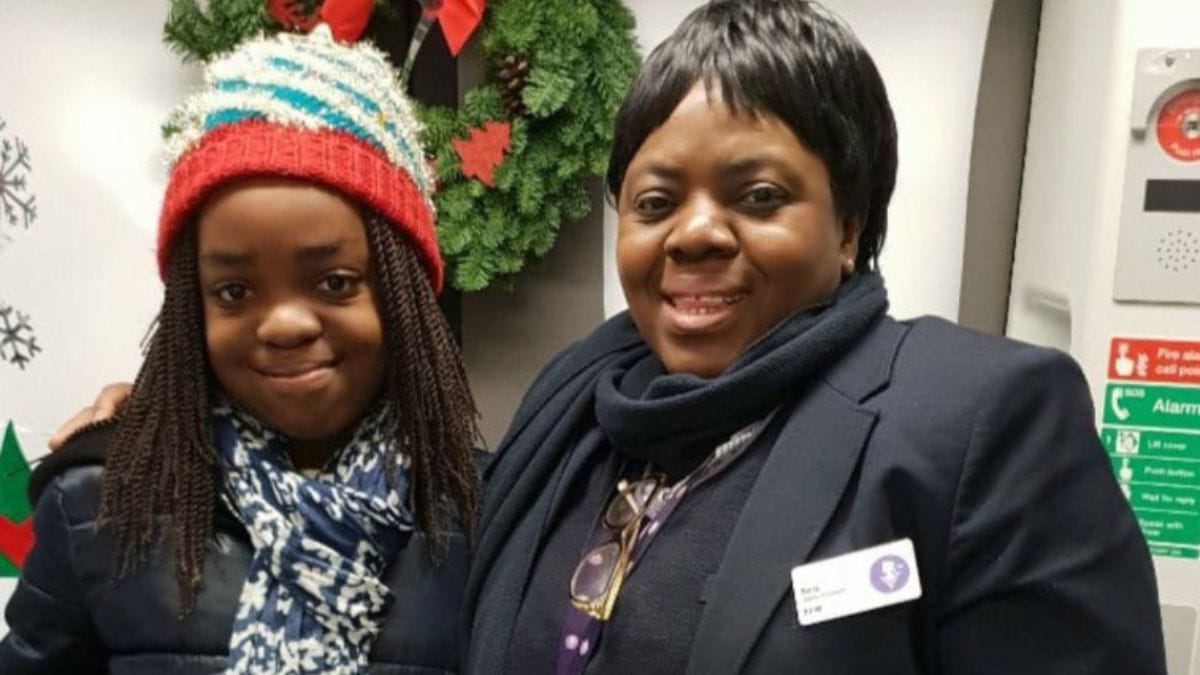NEWS.CATEGORY: Political
TSSA writes to Boris Johnson backing inquest calls Into Belly Mujinga death

TSSA General Secretary, Manuel Cortes, has written to the Prime Minister calling for an inquest into the death of union member, Belly Mujinga, after the BBC Panorama programme raised important questions about the death the railway worker.
Panorama examined events leading up to the death of the 47-year-old, who died in April this year from Covid-19.
Belly, who worked as a sales clerk at Victoria station in London for Govia Thameslink Railway (GTR), suffered from a condition known as sarcoidosis, which is linked to breathing difficulties. On 21 March, she was on duty on the station concourse when she and a colleague were involved in an incident with a male customer. Belly died less than two weeks later from Covid-19.
Now her union is appealing to Boris Johnson to "act without delay, and in the national interest, by doing all you can to bring about an inquest into the death of Belly Mujinga".
TSSA highlight a number of questions from the BBC programme that require answers and which, aired in public at an inquest, would help family, friends, colleagues and transport workers everywhere better understand what happened to Belly Mujinga.
Full text of Manuel Cortes’ letter to the Prime Minister
Boris Johnson
Prime Minister
10 Downing St
SW1A 2AA
London
13th October 2020
Prime Minister
I’m writing to you about the death of our member, Belly Mujinga, in light of the Panorama programme aired on the 12th October – 'Belly Mujinga: Searching for the Truth'.
The programme clearly shows that a number of important questions remain about Belly’s death, relating to the alleged coughing incident at the station involving a man who, it was reported at the time, had been acting in an agitated and aggressive manner.
You will be aware how deeply Belly’s tragic death from Covid-19, less than two weeks after the incident, touched the nation. As you rightly said in the House of Commons on 13th May "the fact that she was abused for doing her job is utterly appalling".
Among the points raised in the Panorama programme which require further examination are:
- Belly’s family claim she told them she had been spat at, and a police officer is quoted in the film saying "we are in no doubt something has happened there". Has the spitting allegation been properly and fully examined?
- Why was Belly allowed to work on the station concourse given she had an underlying serious medical condition (sarcoidosis) which affected her breathing but then stood down after a phone call from one of Belly’s doctors to her employer?
- Why did GTR produce two different versions of its internal investigation findings – with only one showing that Belly’s condition had led to throat surgery and required regular medical check ups?
- When GTR began their own investigation why did the company not call in the police? It was seven weeks after the incident before British Transport Police (BTP) were alerted, and only after our union issued a press release about Belly’s death.
- How can the police be sure the 57 year-old man interviewed about the incident did not have, or had not had, the virus given that the negative antibody test he’d had at that time may have been unreliable?
NB: This point is highlighted in the programme by both a Professor of Microbiology and a Professor of Clinical Immunology. Indeed, Professor Jon Deeks, Professor of Biostatistics at the University of Birmingham, tells the BBC "the police have made a mistake here with the interpretation of that evidence." - Panorama also highlighted conflicting reports about whether the man told Belly and her colleague, Motolani Sunmola, that he "had the virus".
As Martin Forde QC told the programme: "I feel there are sufficient doubts and conflicts around the facts of this case to justify an investigation."
It’s now vital we have an inquest into Belly’s death, to establish the facts which remain, in Panorama’s words "bitterly contested". As things stand, there are simply too many gaps and glaring omissions in this tragic sequence of events – as highlighted by a range of expert doctors, scientists and lawyers interviewed in the documentary.
Belly’s family deserve to know the truth, particularly her 11 year-old daughter, who will now never be able to see her mum again. An inquest, given that it would be held in public, would allow her relatives and our union to ask those vital questions, and hopefully gain some closure and deeper understanding of what happened to our much-loved colleague.
As you will know, transport workers – our members – have been and continue to be true heroes of this pandemic, putting themselves on the frontline each day to make sure our NHS workers are able to get to their jobs, saving countless lives.
Do not let them down Prime Minister, they deserve to know what happened to Belly and be assured that they will have the protection they deserve in future as they play their part in fighting this deadly virus.
Please act without delay, and in the national interest, by doing all you can to bring about an inquest into the death of Belly Mujinga.
Yours sincerely
Manuel Cortes
TSSA General Secretary
